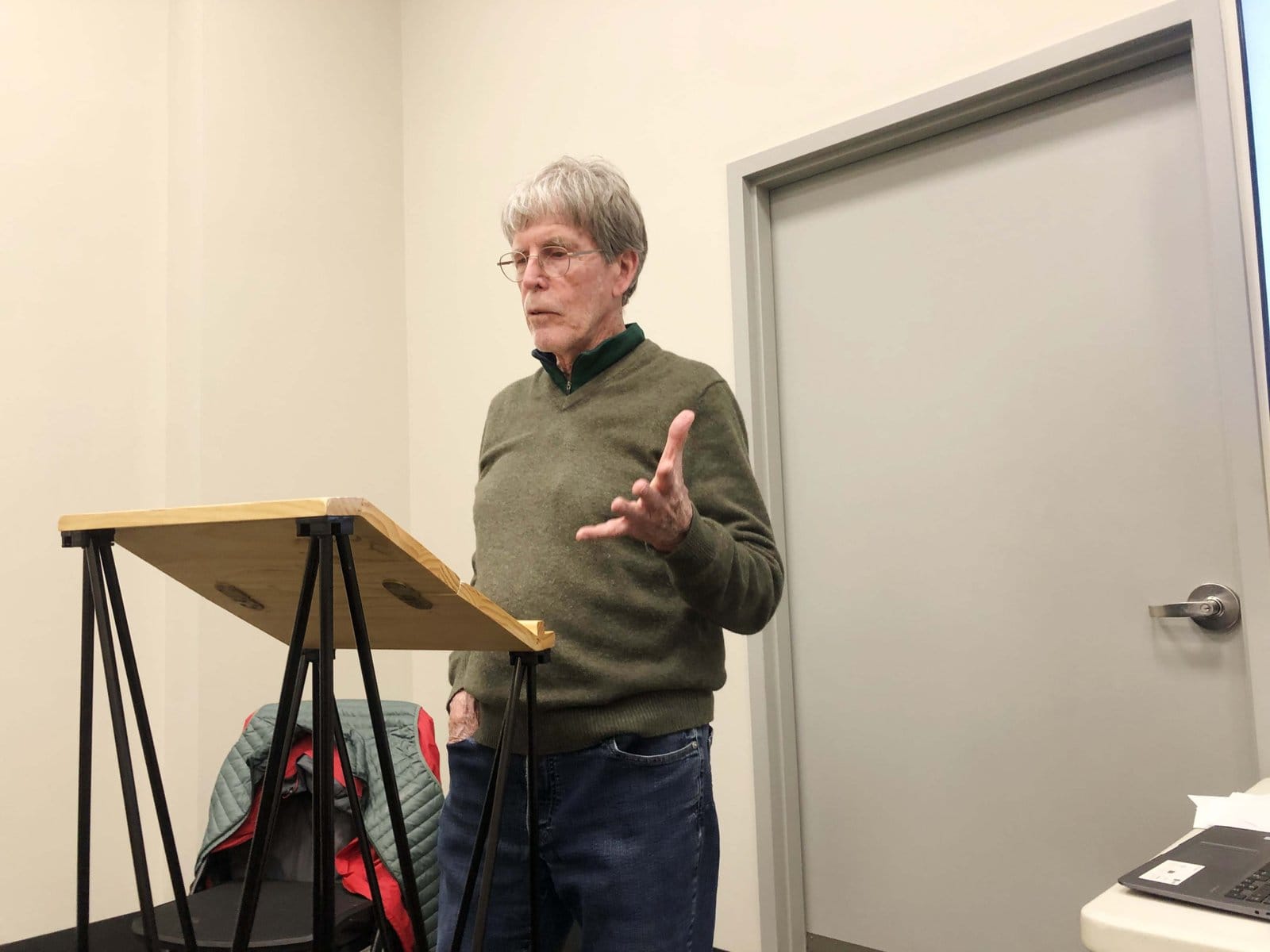May I encourage more locals to come out to seminars and workshops organized around our town?
So much to learn, so much work done by the presenters — and so few attendees.
I learned a long time ago that the more a person learns, the more they know they don’t know.
When we graduated high school, we knew a whole lot, almost everything there was to know.
If someone earns a PhD, they realize how many books are in a library and how few they have read.
They realize how little they know. Is that clear?
The multi-part Wednesday afternoon service presented at our magnificent Niagara-on-the-Lake Public Library, called “Exploring the Basics of AI (for Beginners),” was a case in point.
Presented by Lake Report columnist Dr. William Brown and the library’s Debbie Krause, the seminars talked about the power, limitations and practical uses of artificial intelligence.
Way over my head. I have never even seen a “Star Trek” episode and I can’t spell cryptocurrency.
Two months ago, I understood nothing about artificial intelligence.
Now, I understand a little bit. Is it really just a shortcut to Google searching?
Artificial intelligence is not coming — it is here. It is in its infancy, but definitely here and part of our lives. Today!
Brown has a knack for summarizing topics in easy-to-understand language.
For example, he posits that the weak link in AI is us. Our legislators do not understand or have the will to understand and harness AI.
He looks like an academic and he talks like an academic — therefore, he must be an academic.
He meticulously researches his subjects and then “dumbs it down” for us mere mortals.
One overhead mentioned “ventral and dorsal organoids” — way too deep for me.
Then, Brown showed something even I could understand: his overhead of “the hockey stick graph,” which attempts to illustrate climate change over thousands of years.
Michael Mann, a former Pennsylvania State University climate scientist, and his team flirted with a Nobel Prize nomination and attracted much attention with the hockey stick graph.
On a personal note, I had the good fortune to meet Michael Mann twice in historic Boalsburg, Pa.
Boalsburg, the purported home of Memorial Day, lies just outside of State College, Pa., in the bucolic Nittany Valley.
Don’t worry, I chatted superficially with him about Memorial Day, deftly avoiding any talk of climate change.
AI depends on what we feed it. Weak data, therefore, results in weak AI responses.
Sort of like the computing acronym “GIGO”: garbage in, garbage out.
Another interesting fact from the seminar: the United States government spends more on its military than Russia, China, India and a bunch of other nations combined.
The Gerald R. Ford aircraft carrier cost billions to build and there are some 5,000 sailors on board.
How much does this cost per year?
To fly an F-22 or F-35 fighter jet costs about $35,000 per hour. And that’s U.S. dollars, NOTLers.
The world’s militaries are huge users of AI.
About 10 years ago, I read a book predicting the next 100 years of history.
It explained fairly clearly that the U.S. loves having the world’s largest military, by far, so America can control the oceans.
Every ship on the seas is there with the tacit permission of America — oil tankers, Canadian “destroyers” and more.
A few centuries ago, it was, “Rule Britannia! Britannia rules the waves. Britons never, never, never shall be slaves.”
And then, the Spanish Armada showed up.
That same book explained so much to me. One chapter called the “U.S. Founding Fathers” was brilliant and prescient.
They realized that a hugely powerful and expensive military would create the world’s greatest make-work project.
Every military base has surrounding secondary support businesses and employment.
Think about it — and attend a seminar.










